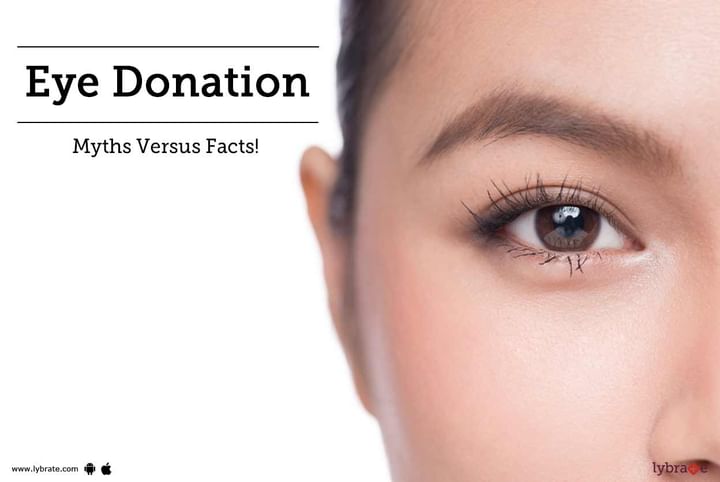Eye Donation - Myths Versus Facts!
Myths and misconceptions about organ donation hold people back from donating organs. There is no denying the fact that donating organs can save lives. Donating eyes can help others experience the world visually. One must think before saying no to eye donation since an eye donated helps another person to see and behold the beauty of the world. Yet, misconceptions and myths abound.
Let us jot down these misconceptions and fight the menace. The drive for eye donation not only needs to be sustained, but it also needs to be accelerated.
Myth 1- People Suffering from a Medical Condition Can't Donate Eyes-
The fact is that anybody can donate his or her eyes, regardless of age or medical condition. It is the doctors carrying out the transplantation process who will determine the health of the eyes of the donor at the time of death. They will determine whether the eyes of a person can be donated to another person or not. So even if one signs up for donation, there is no guarantee that his eyes will be donated after death since he or she may develop a medical condition that incapacitates the eyes. Further, even if one has an illness, it may not affect his or her eyes. In that case, the eyes can be donated to another person.
Myth 2- Old People Cannot Be a Donor-
The fact is that there is no age limit for being a donor. Anybody can donate his or her eyes irrespective of age. In fact, in recorded history, a person in the U.S. has donated his eyes at the age of 93. It is the condition of the eyes during the death of the donor that matter the most, not his age.
Myth 3- Religion Does Not Support Eye Donation-
Most of the major religions in practice support eye donation. In fact, many of them consider eye donation as an act of love and empathy towards others. Whether it is in Christianity, Islam or Hinduism, eye donation is considered to be a pious act.
Myth 4- Doctors May Not Try to Save a Life if They Come to Know That a Person Has Signed Up as a Donor-
When a person is ill and admitted to the hospital, the only priority for doctors is to save his or her life. The donation becomes a possibility only when all life-saving systems and processes fail.
Myth 5- Rich and Famous Get Donated Organs Faster Than Others-
Receiving a donor’s eyes does not depend on money. It is decided by a national computer system. The system matches organs to various recipients on the register. The process involves the calculation of time spent in waiting for eyes, some important medical tests to ensure no medical issues, geographic location, etc. Race, cast, wealth, or celebrity status, etc. are never taken into account for eye donation.



+1.svg)
